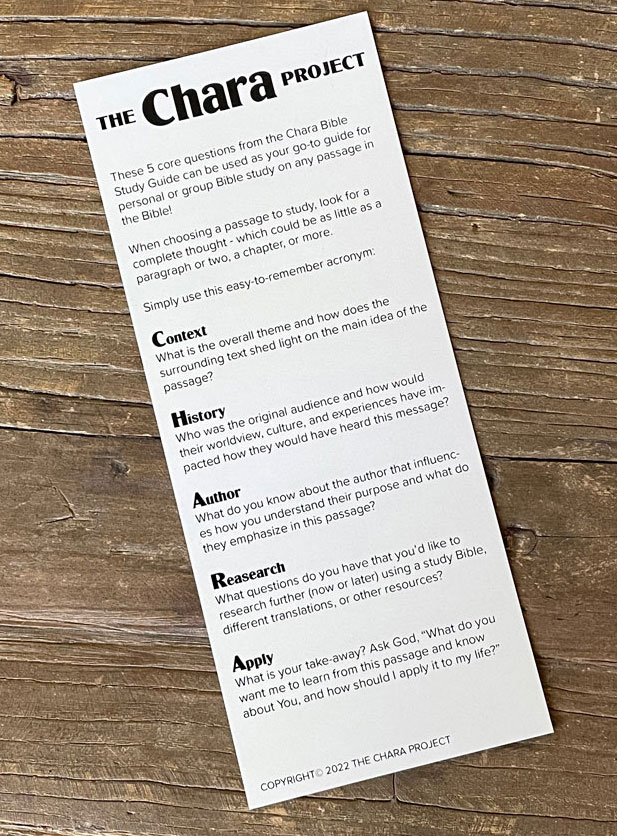
Free Download!
LEARN HOW TO STUDY THE BIBLE
The CHARA Bible Study Guide helps you learn how to study the Bible using the simple-to-remember acronym C.H.A.R.A.
Take the CHARA Bible Study Guide on the road with this FREE bookmark that provides key questions to ask as you dive into God’s Word. Or download the full CHARA Bible Study Guide here.

Free Download!
LEARN HOW TO STUDY THE BIBLE
The CHARA Bible Study Guide helps you learn how to study the Bible using the simple-to-remember acronym C.H.A.R.A.
Take the CHARA Bible Study Guide on the road with this FREE bookmark that provides key questions to ask as you dive into God’s Word. Or download the full CHARA Bible Study Guide here.

